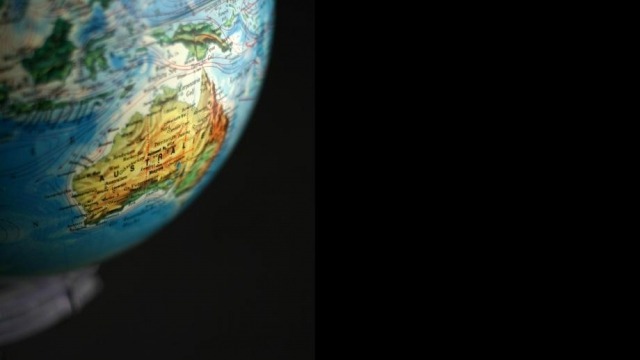Opinion: The world has changed. Australia needs to keep up

By Mark Kenny
A version of this article was originally published by The Canberra Times.
There are decades where nothing happens, and there are weeks where decades happen, Lenin famously observed.
If Anthony Albanese was hoping for calm air in which to land his 2025 re-election plane, he was dreaming.
The PM will visit the Governor-General any day now and should - that is, should - feel quietly confident.
On paper, the first-term PM has a respectable case - stewardship of an economy that has now "turned the corner" from high interest rates while managing to avoid unemployment and keep wages growing. Other economies have dipped into recession.
Plus, his government has had few personnel issues and no serious scandals. It has delivered budget surpluses, fairer tax cuts, targeted assistance in energy bills, access to healthcare and medicines while stabilising growth in the NDIS and normalising relations with China.
On paper, this is certainly enough to justify the customary Australian politeness of an automatic second term in which to flunk or fly.
But this is not a world on paper any more than it is a world of patience. Or politeness.
Words and numbers, we've learned reluctantly, no longer seem certain. Just like money, their potency in exchange turned largely on their widely agreed value and perhaps on the memory of their physical form.
Alliances, likewise. The paperless office, the cashless supermarket, the borderless and fact-averse political contest.
The grubby nonchalance of our digital interactions is not just a metaphor for shallow professionalised politics, it has become it, driving community expectations to ever-new extremes.
The dull cadence of parliamentary government, with its incremental agendas, three-year budget projections and quaint pluralism, is a poor match for the brash swipe-right flippancy of a turbulent world.
This election will be conducted in global circumstances more perilous than any in memory. Perhaps 2001 comes closest but as terrifying as the attacks of September 11 were, they presented an analogue challenge for Australia and the West generally. Al-Qaeda's bloodlust lent itself easily to comforting Western binaries like good v evil, modernity v barbarism, and enlightenment values v misogynistic theocracy.
But in the last month, the world as it was configured when Al-Qaeda's terror occurred has ceased to exist. Geo-strategically, it suddenly has less in common with 2001 than it does with the 1930s.
A new sovereigntist White House is openly treating its friends like enemies and its enemies like business partners. Its watchwords are strength and impunity. Might is right. The global order has been torn up.
What does this mean for an Australia which fell over itself to be part of America's "reliable" security umbrella? Only a fortnight ago the government transferred $800 million to the US to enhance shipbuilding capacity under AUKUS.
The only cover for this otherwise risible self-delusion is political bipartisanship.
How does it stack up now that the risk of an untrustworthy America, say, a decade from now, has arrived. Do we still share its global values?
To his credit, Peter Dutton spoke frankly against Trump's description of Volodymyr Zelensky as a "dictator", calling it "wrong" and labelling Putin the real despot.
But where was this clarity from Albanese, and in truth, how long would Dutton have resisted capitalising if Trump hit back at the PM personally - especially with tariffs?
Outside Australia, the public debate on these changes is raging. Here, not so much.
International policy expert and Yale Professor Rory Stewart told BBC's Newsnight "all the assumptions we have made about the United States ... have evaporated in just a few days".
Britain's top international spook, Sir Alex Younger (MI6 boss 2014-2020) told the same program "we are in a new era where by-and-large, international relations aren't going to be determined by rules and multilateral institutions, they're going to be determined by strong men and deals".
Younger cited, as comparator, the Yalta Treaty of 1945 where the interests of small countries were determined by the major Allied victors of WWII meeting, ironically given the war in Ukraine, in Crimea.
"That's the world we're going into, and I don't think we're going back to the one we had before," Younger said.
Stewart warns that too many people, including world leaders, are ignoring the evidence regarding the trajectory of Trump 2.0 or, are hoping to negotiate special terms.
"He and [Elon] Musk and [VP] Vance are showing radicalism and change. Now, it's irresponsible, it's unbelievably dangerous, it's entirely lacking in values and ... it has deep, deep fascist undertones. But there's no doubt that it is going to be popular and there's no doubt that social media in particular, can inflame and polarise in a way that wasn't possible even with the propaganda of the 30s".
The speed of America's vandalism has helped obscure the individual significance of developments, with each outrage stealing attention from the one that preceded it. Whether it was Defence Secretary Mike Hegseth declaring Ukraine would not get all of its territory back (music to Putin); J.D. Vance going to Munich to lecture European leaders about democracy (he still denies the 2020 election result) or Trump blatantly sprouting Kremlin talking points.
This methodology is called flooding the zone.
As the international order crumbles, former Finnish PM Sanna Marin has called on European leaders to wake up, fast.
Good advice for Australia, too.
Mark Kenny is the Director of the ANU Australian Studies Institute and host of the Democracy Sausage podcast.








